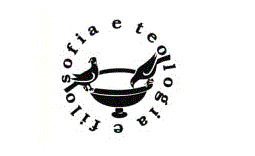


Questo saggio intende ritracciare a grandi linee alcune tematiche apocalittiche che emergono in maniera asistematica dal corpus talmudico; cercare di inviduarne sviluppi specifici a partire dal VII secolo, analizzando la narrativa del Sefer Zerubbavel e il suo influsso sui tardi midrashim pseudoepigrafici trasmessi nel nome di Rabbi Shimon bar Yochai; riportare l’approccio più razionale di Saadia Gaon sulla redenzione di Israele sulla base dal suo Sefer ha-emunot we-ha-de‘ot; accennare alla distinzione tra profezia e apocalittica avanzata da Abraham J. Heschel. Inoltre il saggio, che mantiene un registro ermeneutico-speculativo senza pretese filologiche o storiografiche, vuole mostrare che la letteratura apocalittica del giudaismo medievale compie una prima e decisa apertura d’interesse per la ‘storia delle nazioni’, senza tuttavia perdere di vista la prospettiva religiosa israelocentrica.
This essay aims to retrace, in a general perspective, some of the apocalyptic themes as they emerge in an a-systematic way from the Talmudic texts. It will follow their specific developments since the VII century and analyze the narrative of the Sefer Zerubbavel and its impact on later pseudo-epigraphic midrashim transmitted in the name of Rabbi Shimon bar Yochai. It will ponder the more rational approach by the Jewish philosopher Saadya Gaon (X century) on the theme of redemption, based on his Sefer ha-emunot we-ha-de‘ot. It will explore the distinction between the ‘prophetic’ and the ‘apocalyptic’ as offered by the Jewish theologian Abraham J. Heschel. In addition the essay, which has a hermeneutic-speculative register without any philological or storiographic ambition, will show that the Jewish apocalyptic literature of the Middle Age developed a new interest toward the ‘history of the nations’, although it maintained a religious Israel-centric perspective.